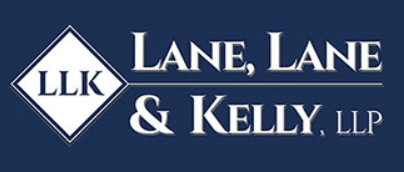When it comes to estate planning, understanding the concept of a stepped-up tax basis is crucial for minimizing tax liabilities for your heirs. This tax strategy can significantly impact how your children inherit and manage your property. Despite many parents contemplating either adding their child directly to their current deed, or even gifting the property to their child during their own lifetime, these alternatives can cost your children thousands, if not hundreds of thousands down the road. In this legal blog post, we will explore what a stepped-up tax basis is, the methods through which your children can benefit from it, and the advantages of using instruments like a revocable living trust to protect your assets.
What is a Stepped-Up Tax Basis?
A stepped-up tax basis is a tax provision (codified under 26 U.S. Code §1014 of the United States Tax Code) that adjusts the value of an inherited asset to its fair market value at the date of the decedent's death. This adjustment effectively resets the asset’s basis, which can significantly reduce the capital gains tax owed when the heir eventually sells the property. For example, if your parents bought a house for $500,000 over 20 years ago, and the property is now worth $800,000 at the time of their death, the stepped-up basis would be $800,000. This means your children would inherit the property at its current market value, avoiding capital gains tax on the $300,000 appreciation. Ultimately saving them thousands or even hundreds of thousands of dollars in taxes that would have otherwise come out of their inheritance, and left them with substantially less.
The step-up in basis applies not only to real estate but also to other capital assets like stocks. For example let's say your parents purchased ABC Stock 15 years ago for $50,000, and they leave that stock to you in their Will. When they die the value of that stock is now $125,000. Your basis is now stepped up to $125,000 and you are not required to pay any taxes on the $75,000 gain in value. However, if you continue to hold those stocks, and 5 years after your parents death the stocks are worth even more at $175,000. Now you are on the hook to pay taxes on the increase in value while you owned the assets, or the $50,000 dollars in appreciation. The tax rate on long-term capital gains is 15% for most people, but can be 20% for high income individuals. Nonetheless, paying only $7,500 in total taxes (15% of your $50,000 capital gain) compared to what could have been $18,750 (15% of the $125,000 gain from the time your parents purchased the stock 20 years ago to when you sold) had you not benefited from the step-up in tax basis.
The Pitfalls of Gifting Property During Your Lifetime
While it might seem generous to gift your home to your children while you are still alive, this can lead to significant tax implications. Gifting property at its current value means your children inherit your original cost basis, not the stepped-up basis. IRS §1015 codifies the rules for determining the basis for gift transfers, which states in short, that the Donee takes the Donor's original cost basis on any gift received. For instance, if your parents gifted the house worth $800,000 that they originally purchased for $500,000, then your children would receive the gift with a $500,000 basis (the same basis of the gift giver). If they later sell the house for $800,000, they would owe capital gains tax on the $300,000 gain, which could be substantial.
Not only would your children be subject to the capital gains tax, but you may also trigger your own gift tax liability. In 2024, the federal gift tax was set at $18,000 per recipient per year (or $36,000 per year for a married couple). This has since increased in 2025 to $19,000 per recipient per year (or $38,000 for a married couple). With almost all real estate property in Massachusetts being valued over this gift tax threshold, gifting the home to your child would result in higher taxes that you would be liable to pay.
Adding Children to the Deed: A Misguided Strategy
Many clients ask us, what if I just add my child to my current deed? Won’t this help them avoid probate? Simply adding your children to the deed of your property does not grant them the benefit of a stepped-up basis. This approach can complicate matters and expose your property to risks such as creditors’ claims, divorce settlements, or disputes among siblings. While adding a child as a joint tenant with rights of survivorship would avoid the probate process for your house, it is absolutely not worth the costs and headaches that it would cause your child after you pass away. Most significantly, your children would inherit the property with your original cost basis, leading to higher capital gains taxes upon the sale.
Another downside includes the new susceptibility to your children’s creditors. If your child has financial problems down the road and is listed on your deed, those creditors can claim your home and place a lien on the property until the debts are satisfied. Or consider if your child is a minor. If your child intends to go to college or a trade school and requires financial aid, the value of your home will inflate their assets and impact the amount of aid that they are eligible to receive.
Lastly, by adding another person to your deed, you are granting them an ownership interest in the property. With property ownership comes ownership rights such as possession, control, exclusion, enjoyment, etc. While you may have full trust of your child now, conflicts can arise when it comes to the use or possession of the home. It can also lead to unintended sibling conflict and resentment should one child be added to the deed and not another. And now that you own the home with another person, you lose the ability to sell or refinance your home on your own accord. It is now a joint decision rather than your own. If you want to refinance to take cash out or sell the property outright, your child or whomever is now on the deed will have to sign off on the decision. While you may agree on how the property is used today, there is no guarantee that you will years down the line. If one of you wishes to sell and the other does not, the last resort is a petition to partition which can be a very lengthy and expensive process. For a full overview of the petition to partition process, you can read our legal blog here. In conclusion, adding a family member to your deed simply to avoid probate can actually cause more problems than it solves. A better alternative is to work with an experienced Estate Planning and Probate Attorney like those at Lane, Lane & Kelly to setup a Will and/or Trust to ensure your loved ones save thousands in taxes and receives a stepped-up basis.
How Can Your Kids Get a Stepped-Up Basis?
1. Put Your Property into a Revocable Living Trust
- Revocable Living Trust: One of the most effective ways to ensure your heirs receive a stepped-up basis is by placing your property into a revocable living trust. This allows you and your Spouse to maintain total control of the trust assets, namely your house, while you are alive. When you pass away, the trust's assets are transferred to your beneficiaries at their current market value, providing them with a stepped-up basis. This method avoids probate, keeps your distributions completely private, simplifies the transfer process, and ensures that your wishes are carried out smoothly.
- Example: Imagine your parents bought their home for $500,000, and it is now valued at $800,000. If they place the house in a revocable living trust, upon their death, the property’s basis is stepped up to $800,000. The children as the successor Trustee and/or beneficiaries just have to file a death certificate with the appropriate Registry of Deeds or District of the Land Court, and can then turn around and sell the home the very next day, with no court approval required. And most importantly, your children can sell it without incurring capital gains tax on the $300,000 gain.
2. Devising the Property in Your Will:
While it will not avoid the probate process without also incorporating a trust into your estate plan, devising the property to your children in your Will also allows for a stepped-up tax basis. Since this method requires probate, the process will be made public record, eliminating your privacy and it can also be time-consuming and costly. The court will oversee the distribution of your estate, ensuring that the assets are transferred to your beneficiaries according to your wishes. This option can also cost your heirs valuable dollars, since a property cannot be sold until the probate is complete. And if the property is registered land with the county Land Court, it will also require a license to sell. This can result in a delay up to several months or even a year, which in a hot real estate market can change the sale price of the home substantially.
For a full overview of the benefits of a Trust and Will and how to incorporate them into your estate plan, please read our comprehensive legal blog post here.The Value of Proper Estate Planning
In summary, the stepped-up tax basis is a powerful tool in estate planning that can save your heirs substantial money on capital gains taxes for both real estate and investment securities. By using a revocable living trust or a well-crafted Will, you can ensure that your children receive a stepped-up basis on your property’s current market value. Avoiding the pitfalls of lifetime gifting and simply adding your children to the deed will protect your estate and maximize the benefits for your heirs.
At Lane, Lane & Kelly, we understand the complexities of estate planning and are here to guide you through every step. Contact us today or visit our office at 836 Washington Street, Braintree, Massachusetts 02184 to learn how we can help you create a plan that secures your legacy and provides peace of mind for you and your family.
This blog is made available for educational purposes only as well as to give you general information and a general understanding of the law, not to provide specific legal advice. By reading this blog you understand that there is no attorney client relationship between you and Lane, Lane & Kelly, LLP.

Matthew B. Lane
Matthew is an Attorney at Lane, Lane & Kelly, LLP. Matthew attended Rensselaer Polytechnic Institute obtaining his undergraduate degree in Business & Finance in 2016, graduating with Magna Cum Laude honors, and later graduated from Suffolk University Law School in May 2025 with Cum Laude Honors. Matthew primarily practices in the areas of Estate Planning, Probate & Trust Administration, and Real Estate Conveyancing.


